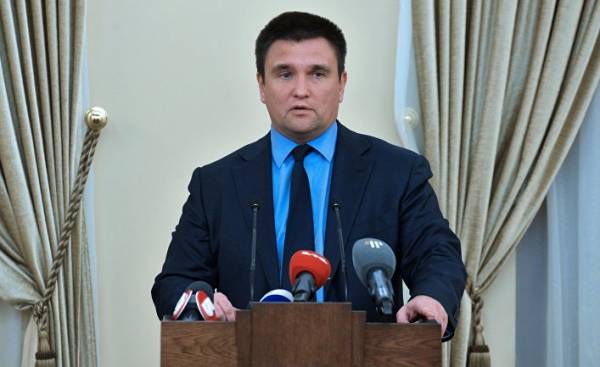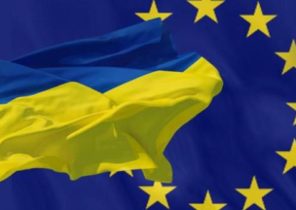
Foreign Minister Pavlo Klimkin urged to reform the UN security Council to deprive Russia of the possibility to abuse the right of veto. The Minister stressed that in the future, it is unacceptable that the paragraph of the UN Charter that “a party to the conflict must refrain from voting” and further “flagrant violated”. Realistic is the plan put forward by Ukraine and as actually to deny Russia the right of veto in the UN, “Apostrophe” says the analyst of the International centre for policy studies (ICPS) Yevgeny Yaroshenko.
Russia is a permanent member of the UN security Council, and, according to the organization’s Charter, the permanent members of the security Council have veto power. One veto from one country can be enough to block any resolution. Ukraine is not the first state, which put forward a similar initiative. But, while Ukraine will not become a victim of aggression of the Russian Federation, this question was not relevant. Now the timing is right, because Ukraine is not a member of the security Council, but presides.
However, whether this proposal is realistic is another question.
To implement this initiative unrealistic, because you need to amend the UN Charter. To change it, for a change should vote the five permanent members (USA, Russia, China, Britain, France), and the parliaments of these countries must ratify the change. But because the veto power gives them considerable privileges in world politics, they are in no hurry with such a radical concession. The probability of deprivation in these countries veto power is close to zero.
It may seem that China, too, has often blocked resolutions of the UN security Council, but in fact he among the five member countries in last place, the frequency of use of the veto. Most often veto Russia and the States. But the deprivation of the right of veto of any country, such as Russia, may create a threat to the United States and China precedent. And therefore, as if these countries with each other or clashed for influence in various parts of the world, no matter how fought the world’s resources, after all in their interest to maintain a monopoly on major decisions regarding peace and security.
It should be noted that, according to the UN Charter, a country that is a party to the conflict shall not vote in the security Council. However, with the situation in Ukraine is different. 5 days after the signing of the Minsk agreements 12 February 2015 was adopted by the UN resolution, which sealed the agreement in Minsk. No matter how bad they may be, this resolution is a document signed by the UN, and, according to the Charter, it must be done, otherwise there can be international repercussions. So, in this resolution by parties to the conflict are not Ukraine and Russia, Ukraine and some representatives of Donetsk and Lugansk regions. Therefore, in consideration of the conflict in the Donbass, according to the resolution on Russia is not subject to the requirement not to use the veto.
On this basis, realistic on the part of Ukraine would not raise the issue of changing the UN Charter and to reclassify Russia as a party to the conflict. It is also a difficult path, but if Ukraine wants to achieve some justice and show its serious intentions, then at least try to start this work you need.
Now to convince that Russia is a party to the conflict, have most countries in the world. And the vast majority of the world, especially in Europe, are not interested to quarrel with Russia over Ukraine, which is very far from their borders. We do not believe in this scenario.
Now the question arises how relevant the UN. In 1945, when the organization was created, the UN Charter was signed by 51 States. Now member States of the UN 193. The UN Charter and even the composition of the UN security Council does not really correspond to the current balance of power in world politics. As a result, the UN is not flexible enough to respond to numerous modern challenges.
Will the Ukraine to push through a similar initiative? Here there are three possibilities. The first is through a change of the UN Charter, but this is unrealistic. The second method is to restrict the use of the veto. A third way through various international agencies to raise the question of the legitimacy of Russia’s membership in the UN. Indeed, in the 23rd article of the UN Charter we are talking about the Soviet Union, not Russia, who simply inherited his role. For 26 years there is no Union. Having a qualified legal approach and enlisting the support, this question could be disputed.







